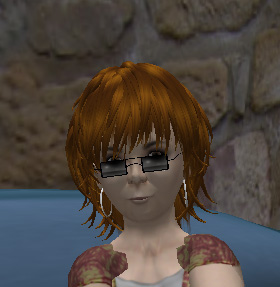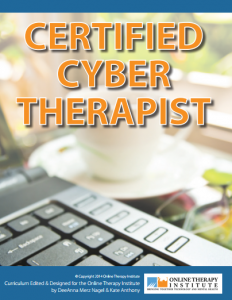 As a mental health practitioner and trainer it is rare I pass up the experience to explore facets of technology and cyberspace that may inform my knowledge to pass on to my trainees at the Online Therapy Institute. Therefore, I felt privileged to be invited to take part in “Avatar as Prosthesis” – an artistic research project by multidisciplinary artist Gretta Louw investigating the relationship between physical and virtual bodies.
As a mental health practitioner and trainer it is rare I pass up the experience to explore facets of technology and cyberspace that may inform my knowledge to pass on to my trainees at the Online Therapy Institute. Therefore, I felt privileged to be invited to take part in “Avatar as Prosthesis” – an artistic research project by multidisciplinary artist Gretta Louw investigating the relationship between physical and virtual bodies.
This project was of particular interest to me currently, as I was recently taken seriously ill having suffered two strokes at the end of October 2015, leaving me with partial paralysis of my left side and in particular my left hand. As Gretta interviewed me I became aware of how much my avatar’s left hand was moving on screen – in much the same way as I move it during my off-line life as part of my ongoing physiotherapy. Indeed, once we had finished the interview and had said goodbye, I realised that my left hand was actually physically aching having watched KateElize Larnia (my second life avatar name) move her hand so much during the hour.
Considering I was taking part in a project entitled “Avatar as Prosthesis” this was, frankly, an extraordinary experience to have had. In the video, we discuss the use of avatars in relation to the famous rubber hand experiment, where multisensory perception can mislead us to adopt sensory experiences that are not true experiences.
You can watch the 20 minute video below, and find out more about Gretta’s work here (personal unique commissions available – I recently commissioned a 50th birthday present for my partner from her).
Having suffered this life altering event through my illness, I am trying to reframe it to grab as much positive experience from it as possible – from experiencing the excellent health care I received in Amsterdam (where I was working when I was, well, struck), to noting the difference in how my brain now functions, having been damaged, for example – now I can no longer type but have to dictate instead of typing at speed. This is essential in my work as my students receive ongoing written feedback and mentoring from me personally throughout their time on my online training programmes. Interestingly, I note how the leaps between one aspect of my expert knowledge to another is so much slower when I am dictating to the screen. However, when typing there is a seamless flow from topic to related topic. I’m sure there is much neuroscientific research out there to explain this, but I get too easily tired to read it all these days!
So, what have I learned from working with Gretta on this project? During the video I explain how I considered KateElize to be less of a prosthesis and more a twin sister, albeit one I am driving. However, my experience taking part was very much of my avatar as a prosthesis in light of my illness, possibly in much the same way as my microphone is now never far from my mouth in order to maintain the levels of communication necessary for my life’s work in examining how we can use technology within the fields counselling and psychotherapy.


